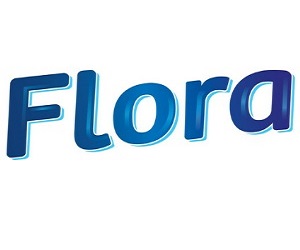Head of Tobacco and Substances of Abuse Department at the Food and Drugs Authority (FDA), Dr. Olivia Agyekumwaa Boateng, said the Authority is ready to support any amendment that will ensure a total ban on public smoking in the country. She made the promise the launch of a report on findings from a smoke-free study in Ghana.
Dr. Olivia Agyekumwaa Boateng, contended that the punishment in the country’s law doesn’t appear deterrent enough and so people are going around it, calling for a total ban on all new innovated tobacco products.
“The law must ban smoking outright. As it is now the FDA cannot do much. The punishment in the law doesn’t appear deterrent enough and so people are going around it. The Designated Smoking Areas is not being adhered to, aside that we are not mandated to ban shisha because shisha is not explicitly mentioned in the law. So there must be a ban on all new innovated tobacco products,” she stated.
She argued that a designated smoking area does not guarantee a smoke-free society because the effects of second hand smoke on non-smokers are dire.
Parliament passed the Public Health Act (Act 851) in October 2012 to revise and consolidate all laws relating to public health to prevent diseases, promote, safeguard, maintain and protect the health of humans and animals and to provide for related matters. Chapter Six of Act 851 has exclusively been dedicated to issues of tobacco control in the country.
Among others it provides for the prohibition of smoking in public places; tobacco advertising, prohibition and sponsorship; points of sale health warning; minimum age restriction; public education against tobacco use; treatment of tobacco addiction; sale of tobacco products; and illicit trade in tobacco products. The law also mandates the Food and Drugs Authority (FDA) to enforce the law.
Several years into its implementation however, stakeholders, including the Ghana Health Service (GHS), the FDA and some members of Civil society groups like the Vision for Alternative Development (VALD) say new and sophisticated tobacco products in the market, coupled with the requirement for a Designated Smoking Area (DSA) in public places is making the enforcement of the law a challenge.
Other stakeholders working in tobacco control sector in Ghana have also expressed the desire to push for the amendment of the legislation regulating tobacco control to ensure a total ban on smoking in the country due to challenges that have arisen in the enforcement of the law.
The Presidential Advisor on Health, Dr. Anthony Nsiah Asare, who chaired the function to launch the report, remarked that despite a low smoking prevalence rate in Ghana, there is still a significant burden of disease attributed to tobacco use in the country and the effect of secondhand smoke exposure to both smokers and non-smokers is also substantial.
According to him, with a large vulnerable young population in Ghana and increasing shisha use among the youth, it is timely to understand and review the country’s current smoke-free policy in an effort to prevent exposure to secondhand smoke in public places including hospitality venues such as hotels, bars and restaurants.
He said the World Health Organization (WHO) recommends that all countries implement comprehensive smoke-free policies, without exemptions for a particular venue types or allowances for designated smoking areas, and that effectiveness of comprehensive smoke free laws has been demonstrated in many countries including Scotland, England, Wales and Ireland and more recently in Uganda.
“Ghana has a partial smoke-free policy that allows smoking to continue in certain types of enclosed public venues. Evaluating these policies is an effective means of measuring progress towards a smoke-free society,” Dr Nsiah Asare noted.




